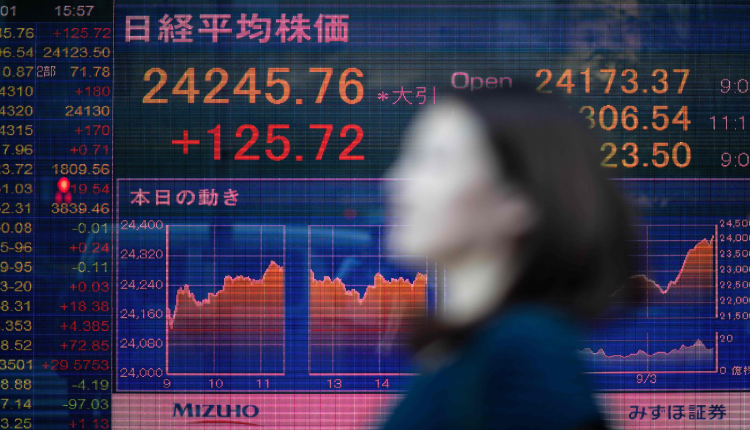Asian stocks exhibited choppy trading on Wednesday as markets braced for a critical US inflation reading scheduled for release on Friday.
The MSCI broadest index of Asia-Pacific shares outside Japan remained nearly unchanged at 566.55, inching away from its two-year high of 573.38 reached last week. However, the index is still up 3.5 per cent for June, on track for its fifth consecutive month of gains.
Japan’s Nikkei and Taiwan stocks surged, driven by chipmakers. This followed the rally witnessed in the tech-heavy Nasdaq on Tuesday, where Nvidia jumped over six per cent, recovering from a three-day decline that erased about $430 billion from its market value.
Meanwhile, the blue-chip CSI300 Index and the Shanghai Composite Index both dipped 0.2 per cent and are headed for a decline of four per cent for the month. Hong Kong’s Hang Seng index also slipped 0.16 per cent.
Traders eagerly await the release of the US personal consumption expenditures (PCE) price index on Friday. This is the Fed’s preferred gauge of inflation, with economists polled by Reuters anticipating an annual growth slowdown to 2.6 per cent in May.
The Australian dollar rose after data revealed a six-month high for consumer price inflation in May. This led markets to adjust their expectations, narrowing the odds of another rate hike as early as August. The Aussie rose 0.39 per cent to $0.6674.
The yen remained stable at 159.79 per dollar, trading within a tight range as it approaches the crucial 160 level. Some traders believe this level might trigger another intervention by Japanese authorities.
The yen had touched a 34-year low of 160.245 per dollar on April 29, prompting Tokyo to spend nearly 9.8 trillion yen in late April and early May to support the currency.
Oil prices displayed minimal changes in Asian trade, with Brent crude oil futures flat at $85.02 a barrel and US West Texas Intermediate crude futures at $80.9 per barrel.
Attribution: Reuters


